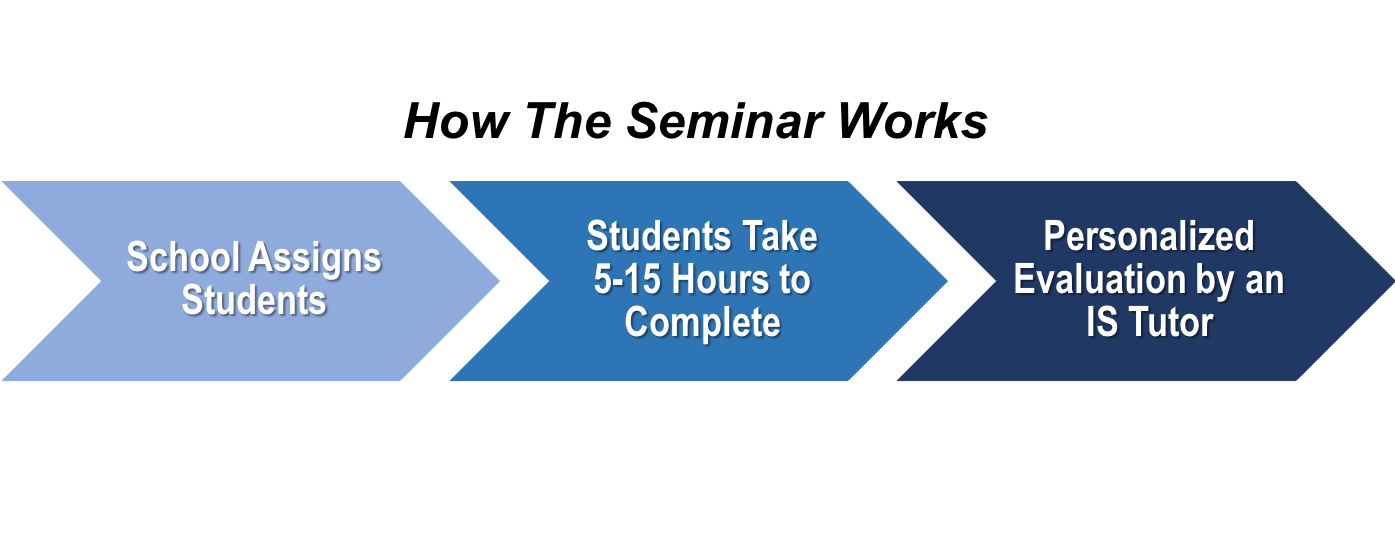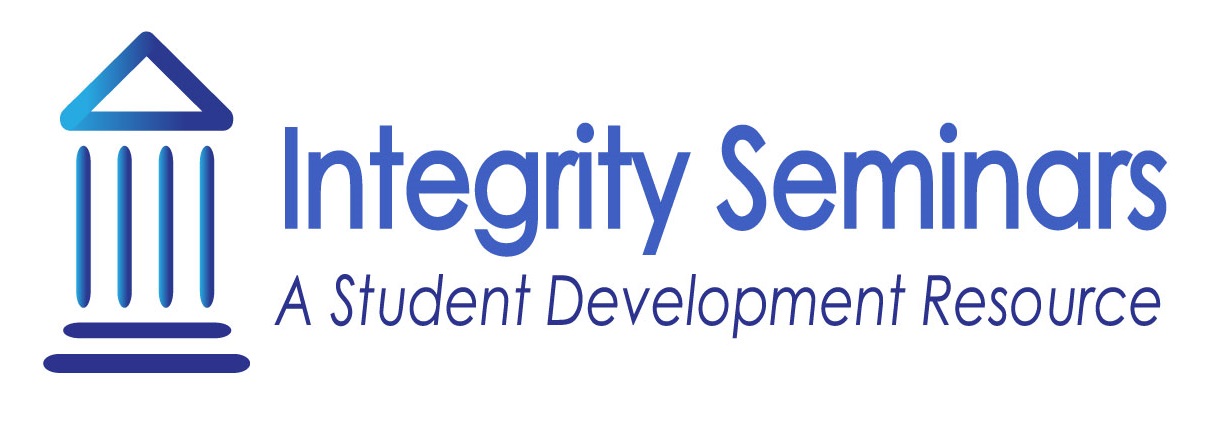What is the Academic Integrity Seminar?
The Seminar
Integrity Seminars offers a robust and thought-provoking course to students called the Academic Integrity Seminar.
The Academic Integrity Seminar (AIS) is a demanding, personalized online educational intervention administered to students at high schools, colleges and universities across the country. The Seminar is used for ethical development programming, honor council and hearing board training, and as remediation for violations of honor codes and codes of conduct.
Hosted on Blackboard, AIS readings and tutor responses have a distinct aim: to highlight the importance of social trust and mutual obligation in personal, social, and economic relationships. This aim comes into focus when dishonesty is understood as a breach of trust in an academic setting.
Student Testimonial:
“To be honest, the first time I opened the assignments I felt overwhelmed. Then I started working on each assignment, one at a time. It may sound crazy, but I did learn so much from each assignment. From this seminar, I learned that I can do amazing work on assignments without using anyone’s words.
I learned that if I want to succeed, I have to give the best of me and put as much effort as I can in achieving my goals. When I was completing one of the assignments, I even had tears in my eyes! That’s how much that particular assignment meant to me! It made me realize how important some people are for me and how being honest plays such an important role in life. Overall, I am glad I took this seminar. Thank you!” – Student, George Mason University
How It Works
The Academic Integrity Seminar can be used as a school’s entire sanctioning program or as a supplement to high school, college and university academic integrity and ethical development programs. Traditional ethical development programs typically help students understand how academic integrity is defined. We at Integrity Seminars take a different approach: we help students understand why academic integrity is important. Whether used as an academic sanction or a training program for students serving on academic integrity hearing panels, the Seminar is designed to elicit thought and analysis about the individual and social imperatives of trust, responsibility, and reciprocity.
The Academic Integrity Seminar is offered through an online Blackboard learning platform. The Blackboard platform is designed to enhance student engagement in an online setting that should be familiar to students. Students are usually assigned by referring educational institutions.
Key components of the Seminar includes:
- A learning module on the basics of academic integrity and proper citation techniques, with a quiz to test comprehension
- Video content and interactive quizzes
- Engaging readings, essay-style responses, and personalized review and feedback from our tutors
- A certificate of completion that includes our tutor review and a copy of the student’s full essay responses
Students are expected to provide fully developed responses that demonstrate serious and thoughtful engagement with the readings. Most students complete the Seminar in about 5 to 15 hours.
One of IS’s unique differentiators is its personalized tutor review (real people, not yet a computer!). When evaluating student responses, tutors may require revisions or assign additional readings to further emphasize main ideas that students may have overlooked.
The Seminar process is explained by this graphic:

IS History
Integrity Seminars was founded in 2006 as Academic Integrity Seminar as a means of providing personalized ethical development programming to students across the country. The Seminar traces its origins to the University of Maryland, College Park, where it was developed as a core component of the University’s new “modified” honor code.
The Seminar was developed as a collaborative effort between IS’s original co-founders, Gary Pavela (applied ethics and the law), DeForest McDuff (economics and management), and Donald McCabe (academic integrity research and analysis).
Our current leadership team includes Gary Pavela, DeForest McDuff, Justin Coon (law), and Gregory Pavela (sociology).

Schools
We have worked with more than 40,000 students taking the Academic Integrity Seminar since 2006 at nearly 100 high school, colleges and universities nationwide, including:
Andrews University
Appalachian State University
Arizona State University
Babson College
Cairn University
Champlain College
Coastal Carolina University
College of Charleston
College of William & Mary
Colorado State University
Columbia University
East Stroudsburg University
Eckerd College
Elon College
Embry-Riddle Aeronautical University
Ferris State University
Florida Atlantic University
Florida Institute of Technology
Florida International University
Florida State University
Furman University
George Mason University
Hamilton College
Illinois State University
Indiana University
Kennesaw State University
Laramie County Community College
Lehigh University
Linfield College
Loyola College – Baltimore
Marquette University
Marymount University
Massachusetts Institute of Technology (MIT)
Miami University
Michigan Technical University
Misericordia University
Mississippi State University
Montana State University
Montana Technical University
Northern Virginia Community Colleges
Oakton Community College
Ohio State University
Palm Beach Atlantic
Purdue University
Rhodes College
Roanoke College
Rutgers University
Sacramento City College
Santa Clara University
Scheck Hillel Community School
South Dakota School of Mines & Technology
Stanford University
Stevenson University
Texas A&M International University
Towson University
Truman State
Tufts University
University of Arkansas
University of Central Oklahoma
Universidad de Monterray
University of Alaska
University of California – Berkeley
University of California – Davis
University of Central Arkansas
University of Central Florida
University of Central Oklahoma
University of Denver
University of Hawaii
University of Houston-Downtown
University of Illinois
University of Iowa
University of Maine
University of Mary Washington
University of Nebraska – Lincoln
University of Nevada – Las Vegas
University of North Carolina – Pembroke
University of North Carolina – Wilmington
University of North Georgia
University of Northern Colorado
University of Oregon
University of Rochester
University of South Carolina
University of Texas – Austin
University of Wisconsin
Vanderbilt University
Virginia Tech
Washington College
Washington State University
West Coast University
Western Governors University
Worcester Polytechnic Institute
Wright State University

